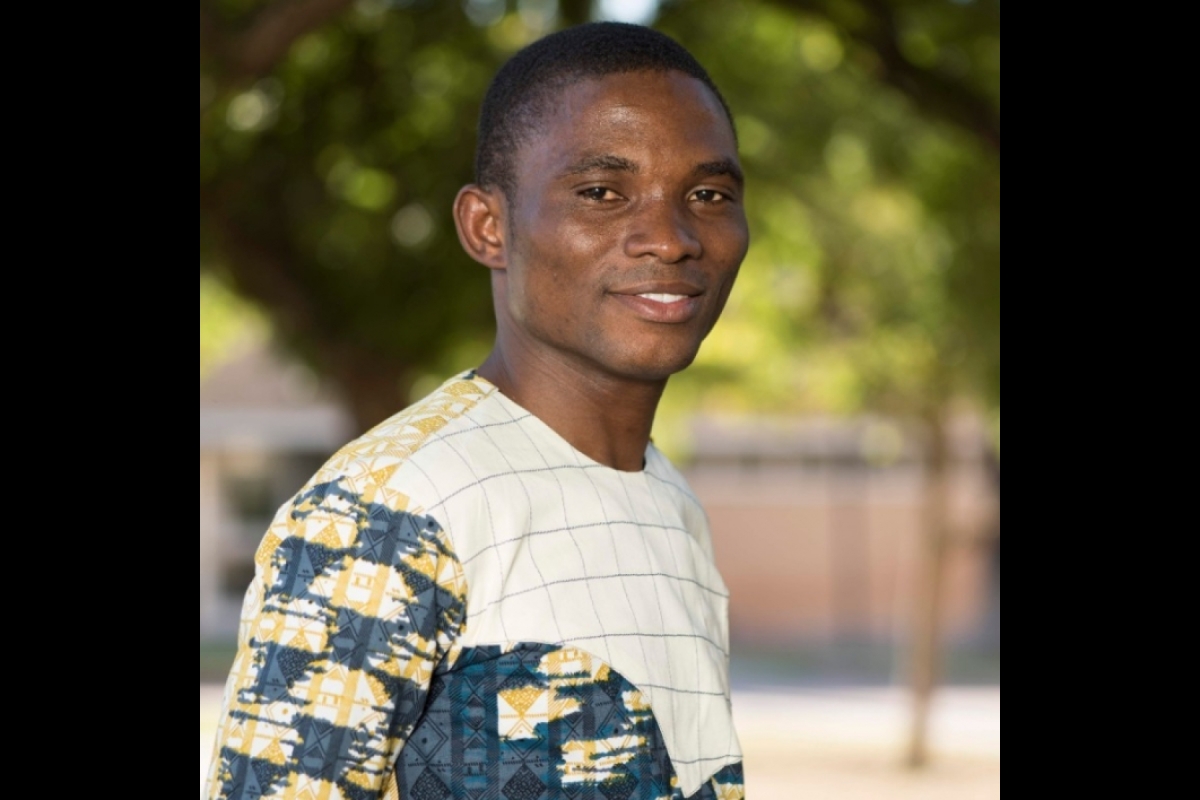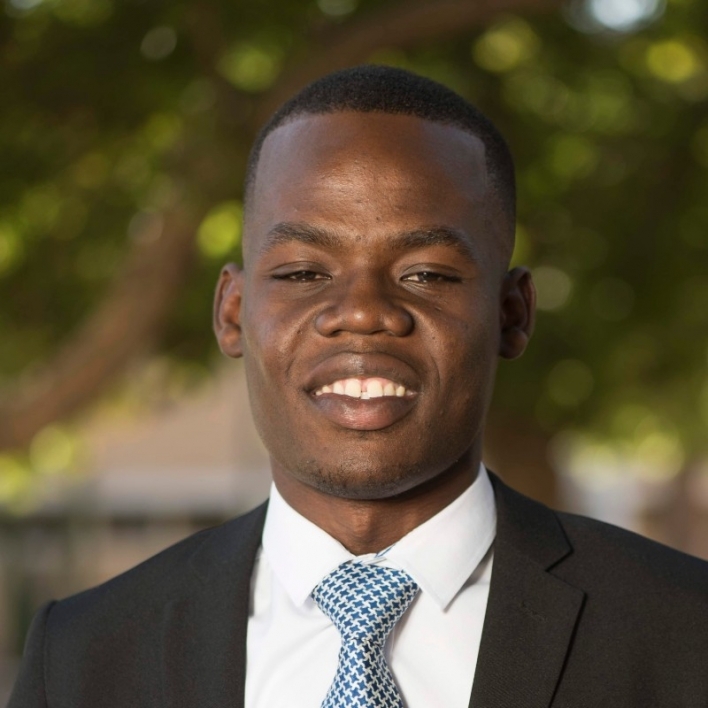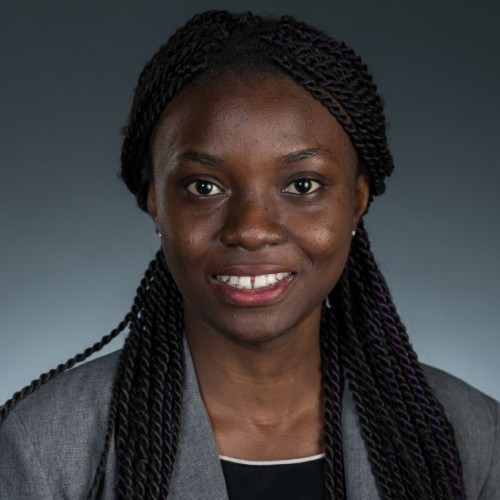Business students put grad specialization to work and take top honors
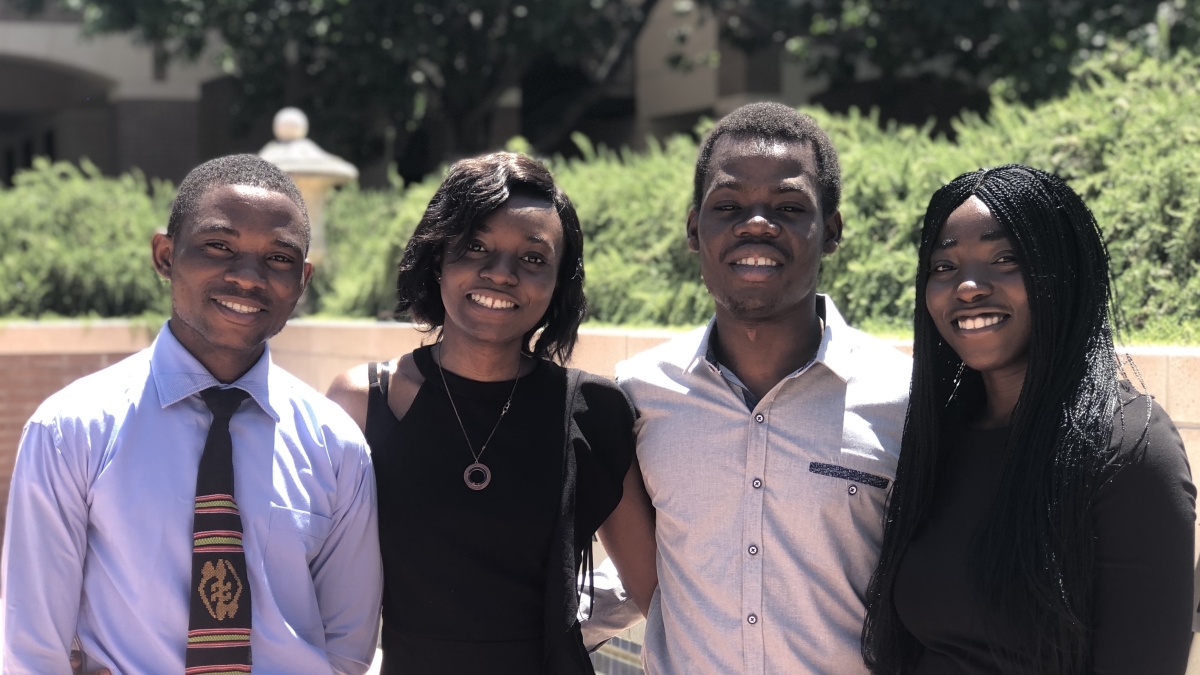
From left are graduating students from ASU's Master of Science in Global Logistics program Samuel Atta Gyan, Asie Wadee, Samuel Togodui and Lois Andoh.
There were a few firsts in this year's Rutgers TEN Plus Supply Chain Innovation Challenge. First off, a team of four new graduates from Arizona State University's Master of Science in global logistics program is one of the top two winners who will share a $5,000 cash prize.
Another first is that the members of the team all hail from Ghana through the Mastercard Foundation Scholars program, including Samuel Gyan, Lois Andoh, Samuel Togodui and Asie Wadee.
The competition is an extension of the Rutgers TEN Plus Supply Chain Case Challenge, which was held annually from 2015 through 2018 and hosted by the Rutgers Business School supply chain management department.
This new competition featured two parallel tracks, one for undergraduate teams and one for graduate teams, including a virtual preliminary round — and it should have had a final round onsite in Newark, New Jersey, in April.
The last new twist was the final onsite round was canceled because of the ongoing coronavirus pandemic. However, the Rutgers leadership team decided to award participants based on their performance in the virtual first round of presentations.
In the virtual first round, teams presented ideas for electronic device manufacturer BetaWare, who sponsored the event, to innovate and add value to their customers.
“Being at the top in this case competition is another confirmation of the successes that I can attain in the supply chain field," Andoh said. "This is just a tip of the iceberg and I can’t wait to embrace what is out there.”
The W. P. Carey School of Business foursome believes their specialized master's program equipped them with tools and skills to address the issues in the case. Through courses such as Decision Modeling and Operations Management, they were able to develop strategies to target the core requirement for the case. For instance, they used the cash conversion cycle, a financial metric learned in their Supply Chain Cost Decision Issues course, to measure the firm’s financial stability. Plus, access to library resources such as Mergent Online enabled them to analyze the viability of their proposal against other companies.
“This case competition was broad and wide open to innovative solutions,” said Patricia Swafford, clinical associate professor of supply chain management, who is also the faculty director and worked with the students. “Winning is a testament to both the forward-thinking ability of the team and ASU’s commitment to promoting ‘out of the box’ thinking and innovation.”
All team virtual preliminary round presentations were blind judged by a panel of top-level executives from Estée Lauder, Panasonic, UPS and Pfizer.
“Congratulations to the team for presenting an innovative solution and sharing in the winning of this competition,” Swafford said. “And thanks to Rutgers for sponsoring this event and rewarding the best teams despite the final round cancellation due to COVID-19.”
Sweet endings to new beginnings
Recently, the Master of Science in global logistics program was designated by the U.S. Immigration and Customs Enforcement agency within the Department of Homeland Security as a STEM-eligible degree program. The designation gives greater opportunities for international students to find employment in the U.S. for up to 36 months beyond graduation, as compared to 12 months for non-STEM degrees.
Togodui plans to take advantage of the benefit. "In the process of pursuing this, I not only look forward to developing new skills and gaining experiential knowledge in supply chain but see it as a prolonged opportunity in giving back to the U.S. community a perspective I bring from a different culture."
Wadee seconds Togodui's plan. “The approval of the STEM employment benefit provides me with a rare opportunity to continue learning and improving upon my skills and abilities to make a lasting impact in the world at large, and it is worth taking advantage of."
The Bureau of Labor Statistics predicts that demand for STEM jobs will grow by 13% by 2027, with higher wages than non-STEM jobs: The national average for STEM salaries is $87,570, while non-STEM jobs earn roughly half as much, with an annual average of $45,700.
“I look forward to applying the knowledge and skills I’ve acquired to solving challenges that we face in our daily lives,” said Gyan, who accepted a job offer to work with a logistics company in Ghana. “I’m excited to work with them. I know the opportunity will provide a conducive environment for me to apply the skills and knowledge I’ve acquired over the years.”
More Business and entrepreneurship
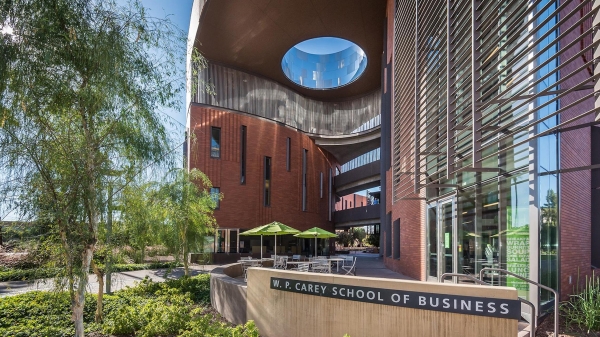
ASU MBA ranked No. 1 in the US for entrepreneurship
In the Poets&Quants 2025 Best MBA Programs for Entrepreneurship ranking released today, the W. P. Carey School of Business at…

New ASU certificate to address veteran underemployment
Veterans and military spouses bring a wealth of talent to the corporate world. Unfortunately, human resources and…
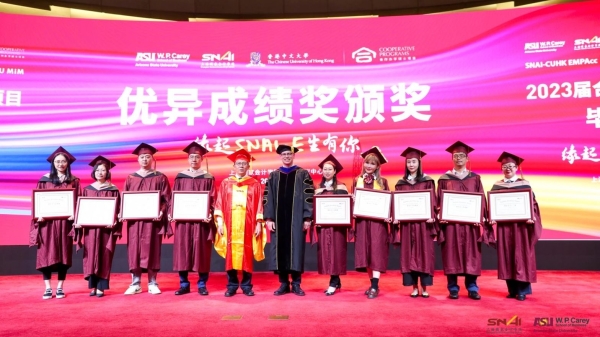
ASU China Executive MBA ranked No. 7 in world by Financial Times
In the 2024 Financial Times rankings for Executive MBA (EMBA) programs, Arizona State University's W. P. Carey School of Business…
